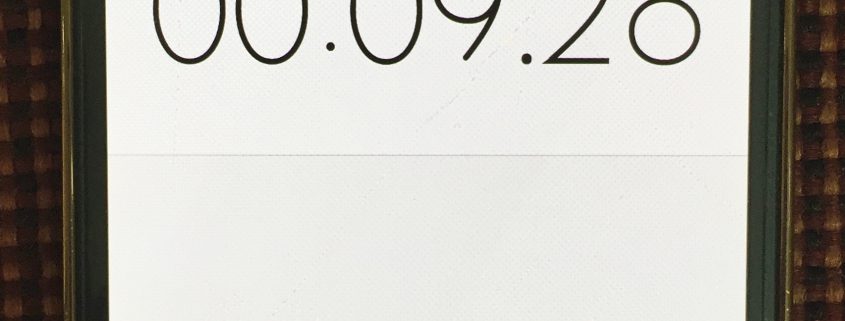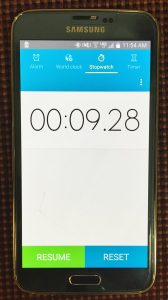5 Ways to Slow Down Your Eating
 In today’s fast paced society, it’s only natural that we rush around trying to get everything done before the day is over. You rush to work, school, and everywhere else you must go. You probably even rush through lunch to get back to your busy day at work.
In today’s fast paced society, it’s only natural that we rush around trying to get everything done before the day is over. You rush to work, school, and everywhere else you must go. You probably even rush through lunch to get back to your busy day at work.
While moving fast may be a necessity for you, eating fast can be detrimental to your health and body.
Eating your meals quickly can also lead to overeating and weight gain.
Think back to your last meal… did you inhale it or take the time to enjoy every bite? How long do you think it took you to finish your meal? If it’s less than 20 minutes, then keep reading.
If you feel like you’re the only person who does this, you’re not! Most people devour their meals in about 5 -7 minutes flat. They put a forkful of food in their mouths and, before they even swallow, the next forkful is ready to go. Do you find yourself doing this too?
Inhaling Your Meals
When you eat fast, it becomes difficult to savor your meals. You’re not able to truly listen to your body and engage in mindful eating. Slowing down as you eat will allow you to really taste every bite and get the most satisfaction out of the meal as possible.
Eating quickly also prevents you from eating until you are comfortably satisfied because you don’t pay attention to your inner fullness signals. Instead, you’ll eat until the food is gone.
It takes your brain 20 minutes to realize that your stomach is full, so if you clean your plate in record time, you likely miss that fullness cue, and reach for more food. By the time the fullness signals kicks in, you are now uncomfortably full, having eaten more than your body physically needed. You are likely also experiencing bloat, heartburn and other uncomfortable GI symptoms (in addition to the emotional side effects of guilt and shame).
5 Tips to Help You Slow Down Your Eating:
- Set an allotted amount of time to sit down and eat your meal – pick whatever time works for you! There is no “best” time to eat. Just be sure you plan it into your daily schedule, and that means breakfast and lunch too!
- Put your fork and knife down between bites – this means completely putting it down on your plate until you’re done chewing what’s in your mouth. Then, and only then, pick up the fork and take your next bite.
- Eat without distractions (meaning no T.V. or Phone) – we all know how difficult this one can be. I suggest making your kitchen/dining room a electronic-free zone! If your phone is in another room then you are not tempted to look at it when you hear that notification. Make sure the kids know too that meal time is not tech time.
- Use your non-dominant hand to hold the fork – this is a simple way to help you slow down. Since your non-dominant hand is usually weaker, you’ll have to pick up smaller forkfuls and really concentrate to keep food from spilling over.
- Eat with someone else – ask a family member or friend to help you reach your goal of slowing down at meals! You can engage in meaningful conversations between bites and, before you know it, you’ll realize you are engaging in many of the tips stated above.
Challenge yourself
Set the timer on your phone and see how long it normally takes you to finish a meal. It might be 5 minutes and you might think that stretching it out to 20 is impossible. It’s not! Continue to use the tips above every time you sit to eat to help lengthen your meal minute by minute. Before long, you will be eating slower and using your inner fullness signals to guide you when to stop. And, you’ll enjoy your meal a whole lot better.
If you’d like to explore how I can help you on your intuitive eating journey, just reach out to me at www.TalkWithBonnie.com .







